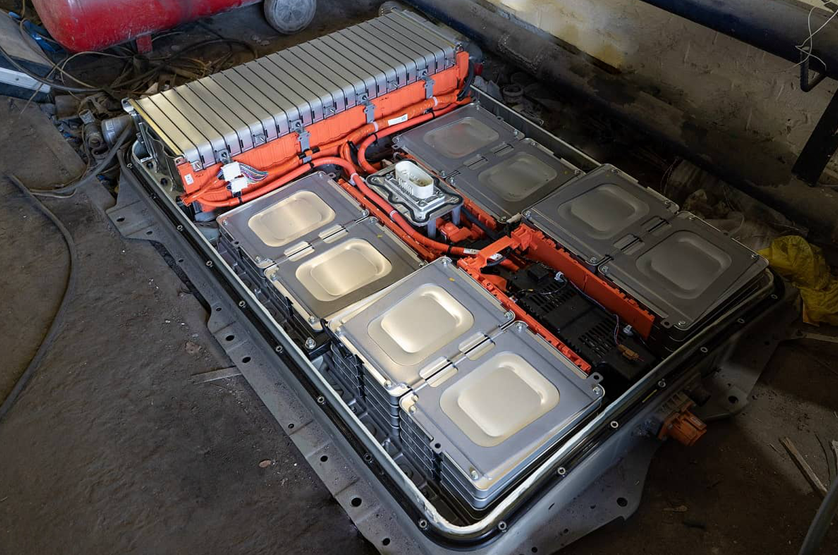China Revolutionizing the Battery Industry: Unlocking the Potential of Energy Storage
The battery industry is on the verge of a significant transformation that has the potential to revolutionize the way we store and utilize energy. With the increasing demand for renewable energy sources and the growing need for reliable energy storage solutions, the focus is now on advancing battery technology to meet these challenges.
Energy storage has become a critical component in our transition towards a sustainable future. It provides a means to capture and store energy generated from renewable sources such as solar and wind, which are intermittent in nature. By storing excess energy during peak production periods and releasing it during times of high demand, energy storage systems can help stabilize the grid and ensure a reliable and efficient supply of electricity.
The key to revolutionizing the battery industry lies in unlocking the potential of energy storage. This requires advancements in battery technology that enhance energy density, increase efficiency, and prolong battery life. Researchers and scientists worldwide are actively working towards developing new materials and innovative designs to achieve these goals.
One promising technology that is gaining traction is lithium-ion batteries. These batteries have become the industry standard for portable electronics due to their high energy density and long cycle life. However, there are still limitations that need to be overcome to unleash their full potential. For instance, the cost of production and the limited availability of raw materials hinder their widespread adoption.
To address these challenges, researchers are exploring alternative materials such as solid-state electrolytes, which offer improved safety and higher energy densities. By replacing the liquid electrolytes used in traditional lithium-ion batteries with solid-state electrolytes, the risk of thermal runaway and explosions can be significantly reduced. Furthermore, solid-state electrolytes enable the use of lithium metal anodes, which have a higher energy density compared to graphite anodes commonly used today.
Another area of focus is the development of flow batteries, which offer the advantage of decoupling storage capacity from power output. Flow batteries store energy in liquid electrolytes contained in external tanks, allowing scalability and flexibility. These batteries have the potential to revolutionize large-scale energy storage applications, such as grid-level integration of renewable energy sources.
Moreover, research efforts are being directed towards the exploration of new battery chemistries beyond lithium-ion. Sodium-ion batteries, for example, offer a promising alternative to lithium-ion batteries as sodium is more abundant and widely available. Although sodium-ion batteries currently have lower energy densities and shorter lifespans than their lithium counterparts, ongoing research aims to improve their performance and durability.
In addition to technological advancements, the battery industry also requires supportive policies and investments to foster its growth. Governments and regulatory bodies must provide incentives for the adoption of energy storage systems and encourage research and development in battery technology. Increased collaboration between industry stakeholders, academia, and government entities is essential for accelerating the deployment of energy storage solutions.
The revolutionizing of the battery industry will not only have significant implications for the renewable energy sector but also for various other industries. Transportation, for instance, stands to benefit greatly from advancements in battery technology. Electric vehicles (EVs) are gaining popularity as a sustainable mode of transportation, and improved battery technology will enhance their range, charging speed, and overall performance.

As the battery industry continues to evolve, it is essential to prioritize sustainability and environmental considerations. Battery recycling programs and the responsible sourcing of raw materials are crucial for minimizing the environmental impact of battery production and disposal.
In conclusion, the revolutionizing of the battery industry is underway, driven by the need for efficient and reliable energy storage solutions. Advances in battery technology, such as solid-state electrolytes, flow batteries, and alternative chemistries, are unlocking the potential of energy storage. Supportive policies and investments are necessary to accelerate the deployment of these solutions. With continued innovation and collaboration, the battery industry holds the key to a sustainable energy future.
-
 When it comes to boating, having a reliable and efficient power source is essential. A cranking battery is designed specifically for this purpose, providing the necessary power to start your boat\'s engine. In this article, we will explore the features and benefits of a cranking battery, as well as provide tips on how to choose the right one for your...Citeşte mai mult
When it comes to boating, having a reliable and efficient power source is essential. A cranking battery is designed specifically for this purpose, providing the necessary power to start your boat\'s engine. In this article, we will explore the features and benefits of a cranking battery, as well as provide tips on how to choose the right one for your...Citeşte mai mult -
 As our reliance on technology grows, so does our need for energy. Portable devices like phones, laptops, and cameras require recharging, while larger equipment such as boats and RVs need reliable energy sources to keep their electrical systems up and running. Across the board, there is a demand for a solution that offers long-lasting energy without being bulky or wired...Citeşte mai mult
As our reliance on technology grows, so does our need for energy. Portable devices like phones, laptops, and cameras require recharging, while larger equipment such as boats and RVs need reliable energy sources to keep their electrical systems up and running. Across the board, there is a demand for a solution that offers long-lasting energy without being bulky or wired...Citeşte mai mult -
 As the demand for efficient and reliable power sources continues to grow, the 100Ah LiFePO4 lithium battery has emerged as a significant player in the market. With its energy-efficient and reliable performance, this battery is setting a new standard for power storage. One of the key features of the 100Ah LiFePO4 lithium battery is its energy efficiency. Unlike traditional...Citeşte mai mult
As the demand for efficient and reliable power sources continues to grow, the 100Ah LiFePO4 lithium battery has emerged as a significant player in the market. With its energy-efficient and reliable performance, this battery is setting a new standard for power storage. One of the key features of the 100Ah LiFePO4 lithium battery is its energy efficiency. Unlike traditional...Citeşte mai mult -
 As the world moves towards a greener future, energy storage technology has become a key area of focus. One of the most promising advancements in this field is the development of Lithium Iron Phosphate (LiFePO4) batteries. These batteries have revolutionized the energy storage industry with their superior performance and sustainability. LiFePO4 batteries are a type of rechargeable battery that...Citeşte mai mult
As the world moves towards a greener future, energy storage technology has become a key area of focus. One of the most promising advancements in this field is the development of Lithium Iron Phosphate (LiFePO4) batteries. These batteries have revolutionized the energy storage industry with their superior performance and sustainability. LiFePO4 batteries are a type of rechargeable battery that...Citeşte mai mult -
 Introduction: The world's increasing demand for electricity has led to the development of smart grids utilizing lithium batteries, which are revolutionizing energy storage. These smart grids are transforming traditional power networks into intelligent systems that can efficiently manage the generation, distribution, and consumption of electricity. This article explores the advantages, challenges, and future prospects of smart grids utilizing lithium batteries....Citeşte mai mult
Introduction: The world's increasing demand for electricity has led to the development of smart grids utilizing lithium batteries, which are revolutionizing energy storage. These smart grids are transforming traditional power networks into intelligent systems that can efficiently manage the generation, distribution, and consumption of electricity. This article explores the advantages, challenges, and future prospects of smart grids utilizing lithium batteries....Citeşte mai mult -
 Introduction Lithium Iron Phosphate (LiFePO4) batteries are fast becoming popular among motorcycle enthusiasts due to their durability, long lifespan, and superior performance compared to conventional lead-acid batteries. These batteries are known for their high energy density, low discharge rates, and safe operation, making them an ideal choice for motorcycle applications. In this article, we will discuss the advantages of...Citeşte mai mult
Introduction Lithium Iron Phosphate (LiFePO4) batteries are fast becoming popular among motorcycle enthusiasts due to their durability, long lifespan, and superior performance compared to conventional lead-acid batteries. These batteries are known for their high energy density, low discharge rates, and safe operation, making them an ideal choice for motorcycle applications. In this article, we will discuss the advantages of...Citeşte mai mult -
 In recent years, there has been a remarkable advancement in medical technology. One of the key drivers behind this progress is the use of lithium batteries to power medical equipment. Lithium batteries have revolutionized the healthcare industry by enabling the development of portable, efficient, and reliable devices that have transformed the way healthcare professionals diagnose and treat patients. This article...Citeşte mai mult
In recent years, there has been a remarkable advancement in medical technology. One of the key drivers behind this progress is the use of lithium batteries to power medical equipment. Lithium batteries have revolutionized the healthcare industry by enabling the development of portable, efficient, and reliable devices that have transformed the way healthcare professionals diagnose and treat patients. This article...Citeşte mai mult

